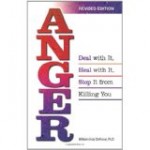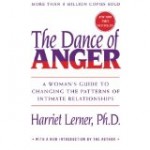
Why have I spent so much time on the topic of anger?
Because it is so prevalent and we see its destructive powers everywhere. Like summer wildfires, the results of anger unleashed and unchecked by reason leave behind a path of destruction. Our lives, too, can become tinder boxes ready to explode with just a spark of irritation.
As therapists we see the results of growing up in homes where anger is out of control. The wounds and scars run deep.
Unless recognized, addressed and changed, the patterns of behavior repeat themselves from one generation to another.
Shame, guilt, fear and sometimes downright terror often keep us from getting the help we need. Yet getting that help is the most freeing thing you can do.
Listen to what your anger is telling you. Maybe it’s time to review your priorities and goals. What is most important in your life – your career or your family? Do you spend time with your kids? If you grew up with constant turmoil, conflict and anger, you may be repeating those patterns with your children.










